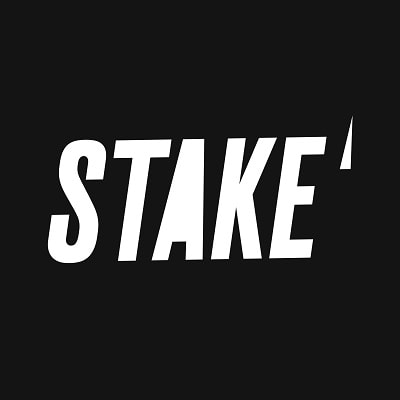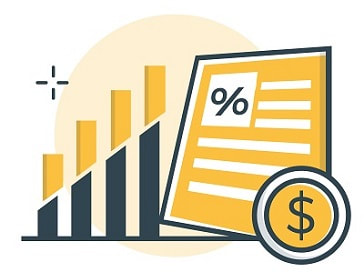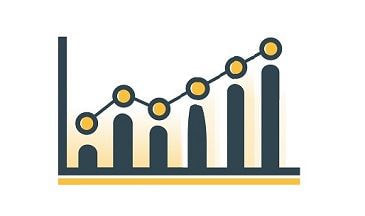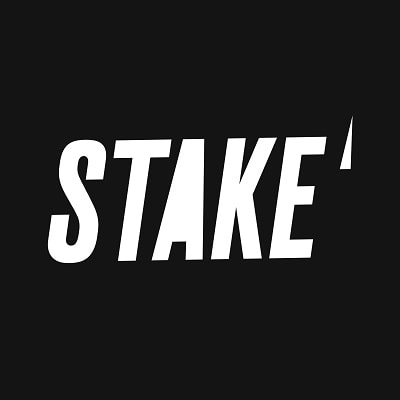Trading - The Definitive Guide
We explain what trading is, what you can trade, the risks, costs, pros and cons and useful tools and platforms to maximise profits.
Updated 16 June 2024
Many New Zealanders have joined share trading accounts offered by the likes of Hatch, Sharesies, Stake, Superhero, Tiger Brokers and ASB Securities, among others.
In this guide, we look at share trading (the most common trading commodity in New Zealand by non-professional investors) looking to build their wealth. We also look at day trading, which is the activity of buying and selling shares multiple times a day for profit.
Many New Zealanders have joined share trading accounts offered by the likes of Hatch, Sharesies, Stake, Superhero, Tiger Brokers and ASB Securities, among others.
In this guide, we look at share trading (the most common trading commodity in New Zealand by non-professional investors) looking to build their wealth. We also look at day trading, which is the activity of buying and selling shares multiple times a day for profit.
|
Your guide to trading is sponsored by our friends at Stake, a leading online share trading platform.
Special Offer: Exclusive US$30 New Signup Bonus with Stake
Key Features of Stake include:
Stake's platform is trusted by thousands of Kiwis, providing low-cost access to US markets with tools for detailed stock analysis and real-time trading decisions. Whether you're a long-term investor or a day trader, Stake offers more investment options than its competitors, supported by robust functionality and extensive resources. |
What can I trade?
For most New Zealanders, there will be three common commodities to trade:
Disclaimer: This guide does not constitute financial advice and is published for educational purposes only. Any trading tools and reviews we link to are not endorsements.
- Shares and stocks (in New Zealand and overseas), either by day trading or medium and long-term investment
- Currency (known as foreign exchange or FX) – our dedicated guide explains FX trading in detail
- Futures - futures contracts are an agreement to purchase or sell certain assets at a future date. The assets can be anything from oil to orange juice, shares to gold. With every futures contract, you agree to buy or sell at a specific price on a particular date. This futures guide explains everything you need to know.
Disclaimer: This guide does not constitute financial advice and is published for educational purposes only. Any trading tools and reviews we link to are not endorsements.
Share trading – what you need to know
Share trading takes a medium to long-term view, where the aim is not immediate profits but long-term wealth creation. We explain everything you need to know to have the best information and decision-making process to help you maximise profits:
Understand you'll need to decide on a minimum investmentPlatforms like Sharesies, Stake, Hatch and Tiger Brokers let you invest from as little as 1 cent – you just pay a per-trade fee. This means you can trade/invest with as little money as you feel comfortable with. Most people new to share trading may invest $500 in a particular company and see how it performs. As with anything, never invest more than you can afford to lose.
|
Choose the right trading platform - there are many available at minimal costWith the recent explosion in DIY online share trading, it has never been cheaper to trade shares in New Zealand and other major markets. We’ve reviewed the following platforms in detail and believe each of them offers significant benefits and unique advantages.
The top available platforms to any New Zealander looking at trading shares include:
Our Sharesies vs Hatch vs ASB Securities has further details, as does the issue around custodianship/ownership of what you trade. |
Know the process of choosing what to invest inBecause of the low cost of trades, many New Zealanders are actively trading in both the New Zealand and US market. Both offer advantages – locally, traders know the economic events and how they affect share prices. In the US, there are thousands of companies, significant trade volumes and significantly more opportunities.
In New Zealand, trading is limited to what’s listed on the NZX. There’s a lot to chose from, and the details around each company can offer more transparency than markets in other countries. In the US, platforms like Hatch and Stake offer thousands of investment options – knowing what to invest in can feel overwhelming. Go-to resources:
|
Understand the risks involvedTrading in shares is risky as you could lose all of your investment. While this is rare, it does occur – CBL Insurance, Snakk Media and Pumpkin Patch are all recent examples of high profile companies that went bust. If you want to limit your risk and invest in companies with solid balances sheets, this guide from Investopedia explains what to look for. Generally, the more profitable and less debt a business has, the lower its risk.
|
Know when it's time to sellIt’s impossible to know when the best price to sell. Market commentators said Xero was ‘overvalued’ at $20 and now the share price is $80+. Most traders only sell for four reasons:
There’s a lot of considerations to make, and this dedicated Investopedia guide covers everything you need to know to help you decide when to sell. |
Day Trading – what you need to know
Day trading is short-term trading for profit. For example, if you buy 10,000 Air New Zealand shares on Monday at 11am for $1.10 and sell them at 3pm for $1.18, your profit will be $800, and you will have day traded.
Why is “day trading” different from trading?
Day trading, also known as short-term trading, has one fundamental characteristic – you’re buying and selling shares to make an immediate profit. While that’s the purpose of buying shares in general, day trading is about maximising returns by frequently buying and selling shares.
Know this: Day trading requires skill, insights and discipline.
Day trading is (somewhat unfairly) associated with gambling, given there is a belief people buy and sell shares on a whim. However, many professional day traders are calculating, disciplined and unemotional. All-day traders have a strategy and follow a detailed plan.
Be aware: Day trading comes with a lot of risk and downside
It’s effortlessly easy to register with the likes of Hatch, Stake or Sharesies and bring trading to your phone or computer. However, many New Zealanders who get into day trading lose money; many fail to comprehend the complexities of capital markets and lose money trade after trade. But there are many other reasons too. COVID-19 introduced many inexperienced investors to day trading, some which ended in tragedy. With any trade, don't allocate more money than you can afford to lose. Trading takes still and care - just because the NZX50 goes up 10% in three months doesn't mean your investments will too.
Why is “day trading” different from trading?
Day trading, also known as short-term trading, has one fundamental characteristic – you’re buying and selling shares to make an immediate profit. While that’s the purpose of buying shares in general, day trading is about maximising returns by frequently buying and selling shares.
Know this: Day trading requires skill, insights and discipline.
Day trading is (somewhat unfairly) associated with gambling, given there is a belief people buy and sell shares on a whim. However, many professional day traders are calculating, disciplined and unemotional. All-day traders have a strategy and follow a detailed plan.
Be aware: Day trading comes with a lot of risk and downside
It’s effortlessly easy to register with the likes of Hatch, Stake or Sharesies and bring trading to your phone or computer. However, many New Zealanders who get into day trading lose money; many fail to comprehend the complexities of capital markets and lose money trade after trade. But there are many other reasons too. COVID-19 introduced many inexperienced investors to day trading, some which ended in tragedy. With any trade, don't allocate more money than you can afford to lose. Trading takes still and care - just because the NZX50 goes up 10% in three months doesn't mean your investments will too.
How do I day trade?
The best day traders don't rush - before you take any position, make sure you know which platform is best, have the right tools on hand, plan your strategy and avoid scams and gurus. We explain the important elements below:
Select a platformNew Zealanders day trading are most likely to do so on the US markets. Hatch and Stake both offer day trading functionality, as does Superhero and Tiger Brokers. You can compare the two using our Hatch vs Stake guide. Both have an extensive selection of pricing charts indicating the recent history of the share, and also offer a signup incentive by way of free money (Hatch) or a free share (Stake).
|
Select charting toolsA day trade is arguably only as good as his or her charting software. Interpreting pricing trends, market data and being aware of upcoming announcements is critical. Market software and electronic trading platforms go side by side. Some of the most popular free and paid charting tools include:
For a more extensive list and overview, Investopedia has more details. Know this: Day traders mostly use technical analysis to make their decisions – this will often be in the form of price charts. At a certain price, a day trader believes a specific company is ’undervalued’ and will buy a shareholding waiting for the market to correct itself. Day trading is difficult on the New Zealand sharemarket, given the limited buying and selling that occurs. Outside the top twenty most traded New Zealand companies, very few others receive much intra-day activity. For this reason, New Zealand day traders tend to favour the American stock exchanges, which offer a high level of volatility and liquidity. Platforms like Hatch and Stake make this possible for any New Zealander interested in short-term investing. |
Decide what you want to trade and form a trading strategy
|
Decide on how much you want to invest (i.e. trade with)Each trade you enter into absorbs an amount of your capital. The best day traders remain fully aware of their current market positions and the risk involved in each trade. Day traders wanting to diversify the risk will separate their capital into multiple trades, knowing that there will be winners and losers and that not all trades will be profitable.
|
Selling non-profitable trades and holding winnersNon-profitable trades are a normal occurrence for any day trader – no one gets it right 100% of the time. Doing so is impossible. If you day trade, you’ll need to accept that there will be ups and downs and you can’t get emotional about them.
To be an efficient trader, you’ll need to have a clear plan when it comes to selling adverse trades (i.e. those that don’t make money). This will avoid you holding the shares as long-term investments which ultimately ties up capital and limits your profits as a day trader. With winning trades, many traders have missed out on profits by being too eager to sell when the share price has gone on to rise and rise. However, no one ever loses money by selling too early, so deciding on a 'sell policy' is essential before placing any trade. Be aware - without a strategy, day traders can end up holding shares for the medium or even long-term. If you buy a share for $1.00 and plan to sell it at $1.10, you can expect a 10% return on your investment when the price reaches the target. However, shares don’t always go up – many day traders find themselves holding shares for longer than one or two days when the price falls. This limits the ability to make further profits as the capital is tied up in the original investment. |
Be aware scams and 'gurus' can be found all over the internet - disregard anything that's unprovenThere are no platforms, tools, apps, software or anything else that can predict share prices. If you see something advertising itself to the contrary, it’s likely to be a scam and is best ignored. People’s behaviour drives market prices – no artificial intelligence can predict what will happen in two hours, tomorrow, next week or next year.
|
Understanding taxes, capital gains and the IRD when it comes to trading
New Zealand’s IRD tax rules are very complicated when it comes to share trading profit, and there is some confusion around taxes from buying and selling shares (whereby the profits would be classed as 'capital gains'). This guide from Sharesight explains what is taxable when it comes to profits. Generally, the IRD looks for several behaviours in determining whether the investor is undertaking a 'business' in trading in shares. These include:
We believe that investing in shares for the medium and long-term falls outside the income tax legislation, meaning any profits are tax-exempt.
MoneyKing New Zealand says: "Capital gains on shares are generally not taxable, that is unless the IRD considers you a “trader”. Unfortunately there’s no black and white rule to determine whether you meet the definition of a trader or not". We agree with this
- Individuals show a pattern of (usually frequent) buying and selling of shares over time (i.e. trading, not investing)
- Individuals invest significant levels of capital in investments, in particular, when investing on margin or borrowing to invest.
- Individuals monitor their investment portfolios closely, perhaps using an advanced online trading platform.
- Individuals spend a lot of time researching their investments.
- Individuals buy high-risk shares to flip at a profit.
- Shares are bought and sold on ‘revenue’ account instead of capital account.
We believe that investing in shares for the medium and long-term falls outside the income tax legislation, meaning any profits are tax-exempt.
MoneyKing New Zealand says: "Capital gains on shares are generally not taxable, that is unless the IRD considers you a “trader”. Unfortunately there’s no black and white rule to determine whether you meet the definition of a trader or not". We agree with this
Day trading – our thoughts
Day trading is a full-time commitment, and if you’re selecting the US markets to trade in, you may need to be awake from around 1am to 9am Tuesday to Saturday (when the Dow Jones, NASDAQ and other American indices are open). You’ll need to choose the right trading platform, have a full conviction as to what you want to trade in, track the trades with timely charting and have a fool-proof selling policy (whether the trade causes a loss or profit). An effective trading plan is essential to any successful investment strategy.
MoneyHub Senior Research Christopher Walsh recounts his experience of ‘day trading’ at an investment bank:
“I worked at Merrill Lynch on a distressed assets desk. There is a belief from outsiders that investment banks buy and sell shares all day for profit. Our desk didn’t do that – instead, it carefully purchased shares, bonds and non-market securities and held them for significant periods. Day trading happens at banks, but not at the trade level people think”.
MoneyHub Senior Research Christopher Walsh recounts his experience of ‘day trading’ at an investment bank:
“I worked at Merrill Lynch on a distressed assets desk. There is a belief from outsiders that investment banks buy and sell shares all day for profit. Our desk didn’t do that – instead, it carefully purchased shares, bonds and non-market securities and held them for significant periods. Day trading happens at banks, but not at the trade level people think”.
|
Your guide to trading is sponsored by our friends at Stake, a leading online share trading platform.
Special Offer: Exclusive US$30 New Signup Bonus with Stake
Key Features of Stake include:
Stake's platform is trusted by thousands of Kiwis, providing low-cost access to US markets with tools for detailed stock analysis and real-time trading decisions. Whether you're a long-term investor or a day trader, Stake offers more investment options than its competitors, supported by robust functionality and extensive resources. |

















